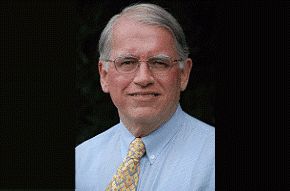
By Amanda Morrall
A call has been put forward to end the practice of auto-enrolling employees into KiwiSaver, a move that would effectively eliminate the need for default providers.
A 15-page report prepared by the Retirement Policy and Research Centre argues that the default provider selection process was a flawed one that conferred upon the successful candidates an unfair commercial advantage with no real proven benefit to the members themselves.
The report's author, Michael Littlewood (a trustee for the private KiwiSaver scheme SuperLife), recommends Government do away with the current default system when the contracts come up for renewal in 2014 or else level the playing field by opening the floor to any provider who meets a minimum prescribed standard for entry.
Five years on, Littlewood said default providers have been more or less unaccountable with practically no public scrutiny as to how well they are serving members.
"How do the default providers compare amongst themselves on fees, investment performance and administrative responses and how do those standards compare with the rest of the KiwiSaver providers? We should really have that information after nearly five years of KiwiSaver.''
But rather than serving the best interests of KiwiSaver, Littlewood argues the selection process was more in line with protecting government interest.
The six default providers (ASB, AXA, AMP, Tower, Mercer, Onepath) "as originally appointed, could be described as part of the following organisations," he said.
- Australia‟s largest retail and corporate superannation provider (AMP);
- The world‟s largest banking, insurance and financial services group (ING);
- The biggest external provider of superannuation services to the State sector (ASB);
- The world‟s biggest insurance broker (Mercer);
- The biggest New Zealand-listed insurer (Tower);
- The world‟s largest insurer (AXA).
"It might look as though this really wasn't about the capability to deliver KiwiSaver to the benefit of members; rather it looked as though the aim was to reduce the government's exposure to risk. That may have been a reasonable basis to protect the government‟s interests but in this case, the members‟ best interests were not necessarily aligned with the government‟s.
Littlewood said the absence of any government or public debate about the subsequent merger of AXA and AMP, was a case in point of the lack of rigour.
We welcome your comments below. If you are not already registered, please register to comment
Remember we welcome robust, respectful and insightful debate. We don't welcome abusive or defamatory comments and will de-register those repeatedly making such comments. Our current comment policy is here.